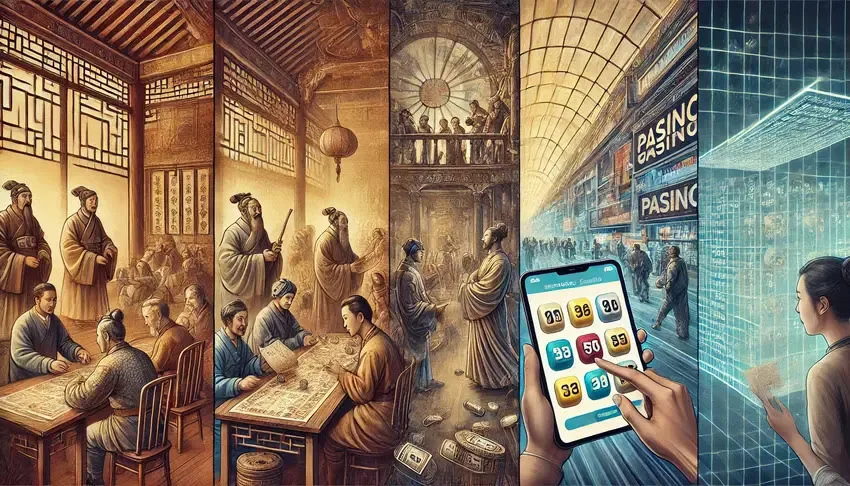Lotteries have a long and fascinating history, evolving from simple draws to the highly sophisticated games we see today. These games of chance have played a significant role in society, from funding public projects to becoming a cornerstone of the entertainment industry. With the rise of digital platform Pasino casino, the accessibility and variety of lotteries have reached unprecedented levels.
Understanding the history of lotteries offers valuable insight into how gaming preferences and regulations have shifted over time. From ancient civilisations to the modern online landscape, lotteries have continuously adapted to societal changes, technological advancements, and shifting legal frameworks.
The First Lotteries in History: The Birth of the Game
The origins of lotteries can be traced back thousands of years. The earliest known lottery-like games date back to ancient China, where the Han Dynasty (205–187 BC) used keno-style games to fund military and infrastructure projects, including the Great Wall. These rudimentary lotteries provided an early model for organised gambling.
The Romans also played a significant role in the history of lotteries. Emperor Augustus is believed to have introduced a form of lottery to raise funds for city repairs, offering prizes of valuable goods instead of money. During the medieval period, European countries began experimenting with similar games, primarily to support civic projects and charitable causes.
By the Renaissance, lotteries had gained widespread popularity across Europe. In 1445, the town of L’Ecluse (modern Belgium) held a public lottery to raise funds for fortifications. This period saw a transition from private, event-based games to state-controlled lotteries that aimed to generate revenue for governments.
Lotteries in Modern Times: Development in Europe and America
By the 17th and 18th centuries, state-sponsored lotteries became a popular means of funding public projects. The Dutch were pioneers in organising national lotteries, with the Staatsloterij (founded in 1726) being one of the oldest still operating today. England and France also established lotteries to finance military efforts and infrastructure projects.
Lotteries were instrumental in financing the development of colonial America. Many early universities, including Harvard and Yale, benefited from lottery proceeds. These games were seen as a legitimate way to raise public funds without increasing taxation, making them highly attractive to governments.
Despite their popularity, lotteries faced growing criticism in the 19th century due to concerns about corruption and fraud. Many governments either banned or heavily regulated them. In the United States, the scandal surrounding the Louisiana Lottery led to a nationwide prohibition on lotteries in the late 1800s, which lasted until the mid-20th century.

20th Century: Modernisation and the Emergence of National Lotteries
Following decades of prohibition, governments began reintroducing state lotteries as a means of generating public revenue. In 1964, New Hampshire became the first U.S. state to establish a modern lottery, setting a precedent for other states to follow.
Across Europe, national lotteries became more structured and widely accepted. Countries like the UK, France, and Spain introduced state-run lotteries, providing controlled and regulated gaming environments. The establishment of organisations such as Camelot (UK National Lottery) ensured fair play and responsible gambling.
The late 20th century saw rapid advancements in lottery formats. The introduction of scratch cards and televised draws revolutionised participation, making lotteries more engaging and accessible. These innovations laid the groundwork for the digital revolution that would follow.
Modern Lotteries: The Digital Age and Globalisation
The 21st century witnessed a dramatic shift towards online lotteries. Platforms like Pasino casino have made it possible for players to participate in global draws from the comfort of their homes. Digital lotteries provide seamless transactions, instant results, and enhanced security measures.
Thanks to the internet, players can now engage in international lotteries such as EuroMillions and Powerball. These transnational games offer enormous jackpots, attracting millions of participants worldwide and reshaping the lottery landscape.
With the emergence of blockchain technology and artificial intelligence, lotteries are entering a new era of transparency and automation. Cryptocurrency-based lotteries are gaining traction, promising provably fair draws and decentralised prize pools. As technology evolves, platforms like Pasino will continue to innovate, offering new and exciting lottery experiences.